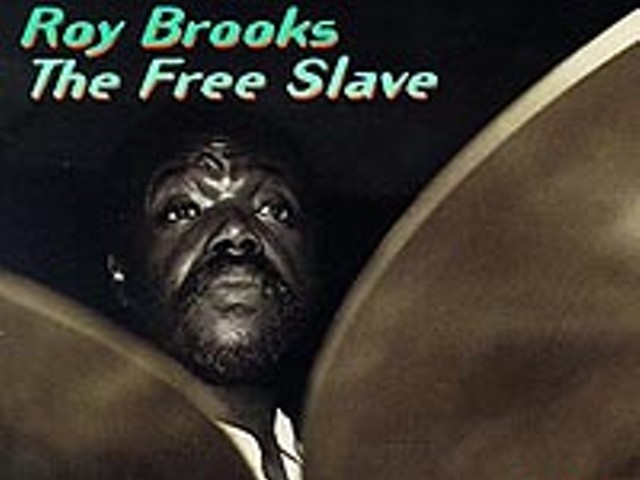Anybody trying to get a handle on what's going on in contemporary pop/rock music right now may get a case of whiplash. Take a cursory look and you come back thinking its stars have nothing but pubic activities on the brain. Teen pop appropriates sex-symbol imagery in music and media only to undermine it with virginal advocacy. (Britney Spears wants to be sexual and asexual, as if she were the in vitro love child of George Michael and Michael Jackson.) Thanks to the likes of Lil' Kim and Kool Keith, hip hop seems to strike an oversexed pose, but the genre's comic-book hyperbole is part of the packaging. Rap-metal acts such as Limp Bizkit are young boys acting tough-guy brawny, while the shock-metal of Slipknot is men acting horror-show androgyny. All the while, every single one of them has something to complain about — friends being fickle, boyfriends being bad, girlfriends being needy, fame being suffocating, you name it. Today's pop and rock seem sexually obsessed on the surface, but it's music that's basically frustrated.
That rock's libido is tangled up in blues is nothing new. More interesting is how artists just below the mainstream's surface respond to it. In the late '80s, an era of equally sexually obsessed yet flustered pop/rock, a small cadre of bands linked under the collective sobriquet "shoegazers" found a way to incorporate that tension into their sound. The shoegaze moment lasted only a few years, but amid our own set of sexual contradictions, its tense, dense sound is once again emerging in the shadows, just outside the limelight. Several albums released in the past six months — Lupine Howl's The Carnivorous Lunar Activities of Lupine Howl, Mercury Rev's All is Dream, Sparklehorse's It's a Wonderful Life, Spiritualized's Let It Come Down, Hope Sandoval and the Warm Inventions' Bavarian Fruit Bread, Lift to Experience's The Texas-Jerusalem Crossroads, Windy and Carl's Consciousness — spin variations or riff outright on the late-'80s shoegaze sound.
Make that shoegaze and space-rock, the British and American versions of the layered, droning guitar-pop narcotic that grew out of the tail end of the 1980s and into the early 1990s. Named by pithy British music critics in honor of the motionless stage presence of its practitioners, shoegaze was the sound of musicians agog in contradictions. At turns loud and quiet, ostentatious and minimal, it was music defined by its introspective instability. Recall My Bloody Valentine, Lush, Slowdive, Ride, Chapterhouse, Swervedriver, and Kitchens of Distinction in the U.K., and American Analog Set, Mazzy Star, Galaxie 500, and the space-rock scenes in Denton, Tex., and Dearborn, Mich.
The high-water mark of shoegaze was My Bloody Valentine's 1991 Loveless, a lush, stirring tapestry that still bewitches its fans. Loveless' dense production and hypnotic atmosphere drugged listeners with its sound's lovely oxymoron: at once hard and soft, up-tempo and languid, lascivious and frigid. Here was a quartet composed of two men and two women that seethed a kind of sexual tension that rock music hadn't seen in some time, and it really crawled under fans' skins.
A great deal of that tension came out of the vocal pairing of Kevin Shields and Blinda Butcher. Their voices fit together well — not like familiar lovers, but like overly familiar lovers. Together they contributed to one of the most sensually luxuriant albums of the decade, but it's also a sexiness that's void of eros.
Shoegaze/space-rock's sensual sangfroid owes a great deal to its relative gender equality — guys and gals were as likely to create it. As Sonic Youth did in the early 1980s — and even as Fleetwood Mac did on Rumours — playing male and female voices off one another infused the music with an erotic tension that was more recognizable than the sexual blurt of much contemporary rock. At the advent of shoegaze/space-rock, pop music meant glam metal, while the underground was primarily noise-rock, the big-bore roar of Midwest machines (Jesus Lizard, Big Black, Bastro), Northwest sludge slingers (Soundgarden, Screaming Trees), and East Coast guitar explosions (Bitch Magnet, Phantom Tollboth).
None of the above provided room for gender identities outside of the exaggerated. Don't forget, the turn toward a more politically conservative climate during the 1980s also resulted in a return to more conventional gender/sexual identities too, as people reacted to the looser mores of the '70s and the AIDS epidemic. And shoegaze and its American cousin were in many ways a musical/subcultural manifestation of that shift. In shoegaze bands, men and women functioned in more traditional, if creatively more egalitarian, gender roles, infused with the conventional associations of male and female. It was guitar rock touched by sensitivity. It was heavy music you could almost dance to. It was lyrically punchy yet dreamy. And perhaps expectedly, this return to more typical gender roles created some of the most sexually frustrated rock music ever made. It made that tension a part of its sound.
Today, pop and rock are just as tumultuous as they were in the 1980s. Perhaps that why many musicians have returned to the fluid forms of shoegaze/space-rock as a response. The best of these latter day outings — particularly the albums by Windy and Carl and Mazzy Star alumna Hope Sandoval — do something new with the genre that more fickle critics may deem post-space-rock or nügaze. Consciousness flirts with the late-'90s avant-rock lean toward long-form composition and collage. And with Bavarian Bread Fruit, Sandoval has finally found a less pretentious setting for her velvety voice. The pseudo-psychedelia of Mazzy Star always felt a little forced, as if she were reluctantly dabbling in the paisley underground's playground. Fruit is less guitar dependent and more tastefully arranged and textured with abstruse nuance, giving it an slippery timelessness, much in the same way that a Polaroid photo taken last night has the eerie gloss of something that could be a decade old. This approach provides Sandoval with different musical settings and more opportunities to try vocal styles other than her admittedly fetching lilting monotone.
It's still music void of immediate pleasure, though, which is why it forever remains outside the mainstream. Pop/rock music is predicated on instant gratification, and music that drips with frustration's sulk just ain't going to cut it on airwaves. Really now, when you turn on the radio, do you want to feel like you're bootylicious or that you're stuck with the rest of the pack not getting any?
Bret McCabe writes for City Paper, where the original version of this feature appeared. Send comments to [email protected]




